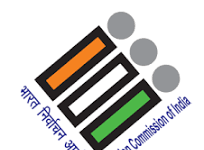
Maharashtra Chief Minister Uddhav Thackeray contacted the Prime Minister’s Office about an acute shortage of medical oxygen and the antiviral drug Remdesivir but was told that Modi was campaigning in West Bengal. The West Bengal Assembly elections are now in their fifth process of polling.
Dr. Harsh Vardhan and Piyush Goyal, Union Ministers, referred on Saturday to claims that Maharashtra Chief Minister Uddhav Thackeray wanted to talk with Prime Minister Narendra Modi about the shortage of oxygen cylinders for critically ill Covid patients in his province, but was turned down.
Dr. Vardhan said he spoke with Mr. Thackeray and assured him that Maharashtra, the country’s worst-affected state, would receive an “adequate and uninterrupted supply of medical oxygen” as well as 1,121 ventilators.
“Spoke to Maharashtra Chief Minister Uddhav Thackerayji… Assured (him) of sufficient and uninterrupted supply of medical oxygen, as well as all possible assistance with regard to healthcare facilities, drugs, and therapeutics…,” he wrote on Facebook.
Dr. Vardhan’s cabinet colleague, Railways Minister Piyush Goyal, had previously accused Mr. Thackeray of “petty politics” and described his government as “corrupt and inept.”
Top government sources previously told NDTV that the government had “to eventually act… after constant taunts and outbursts” from the state, which had made “petty and untrue charges against the Prime Minister.”
Mr. Thackeray dialed the Prime Minister’s Office in Delhi but was told Prime Minister Modi was in Bengal campaigning for the BJP in state elections, according to sources.
Mr. Thackeray’s call came two days after he wrote to the government, requesting assistance in airlifting oxygen from other parts of the world and offering financial assistance to the needy.
With over six lakh active cases, Maharashtra is suffering on a number of fronts, including a demand for oxygen cylinders, which, if unmet, may be fatal for many Covid patients.
Other states, like BJP-ruled Madhya Pradesh, have recently raised concerns about a shortage of oxygen cylinders, which are required to support people with advanced COVID-19 symptoms who are frequently unable to breathe on their own.





